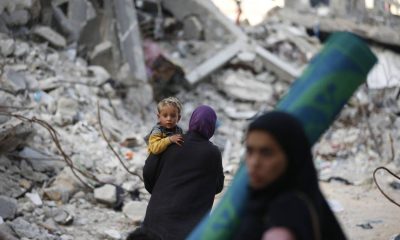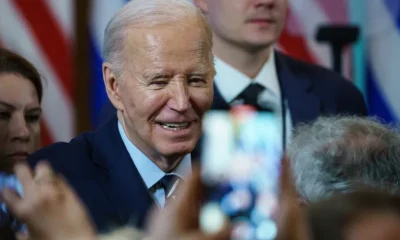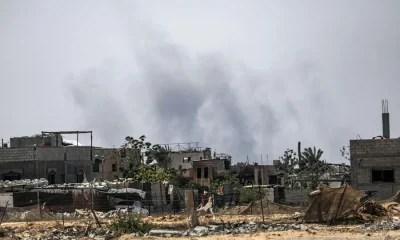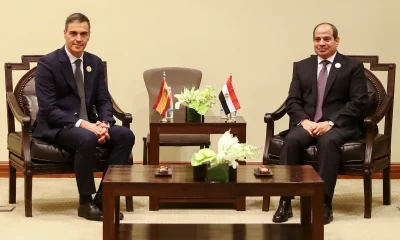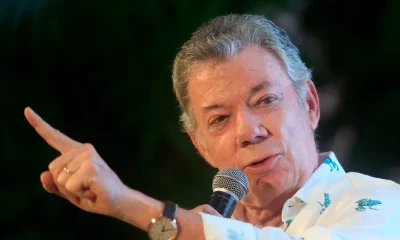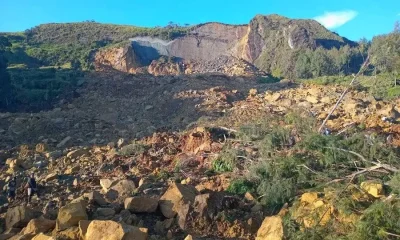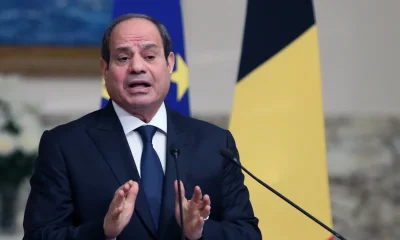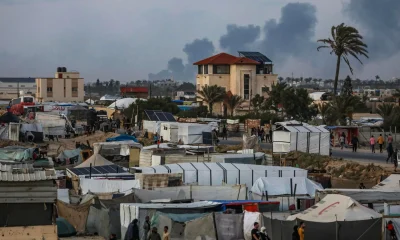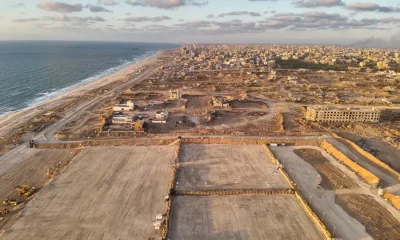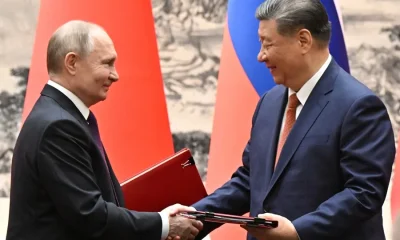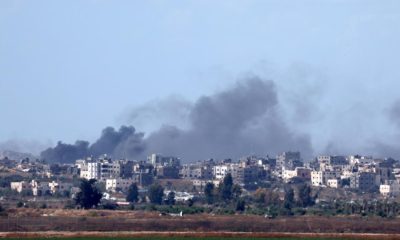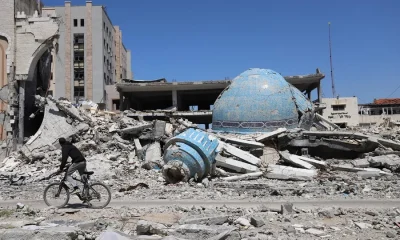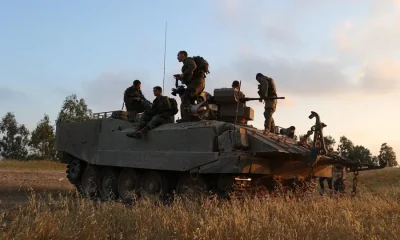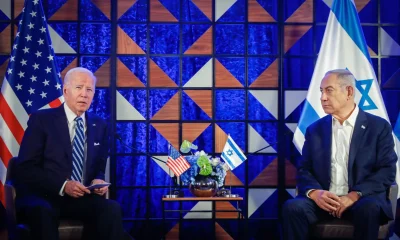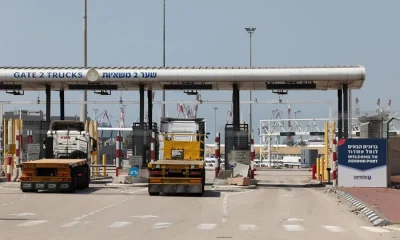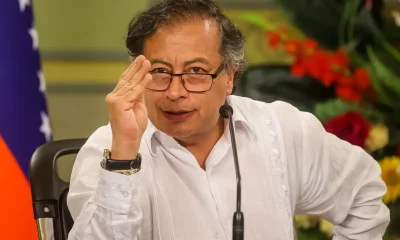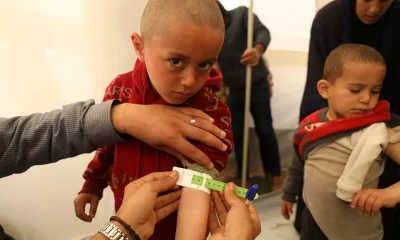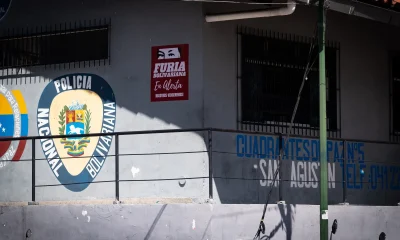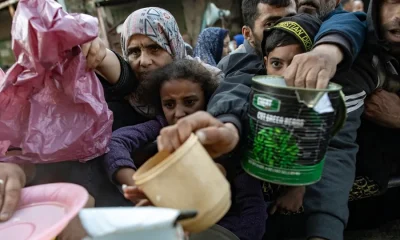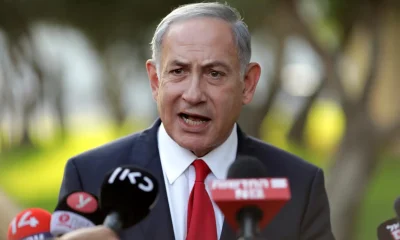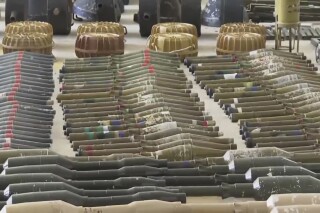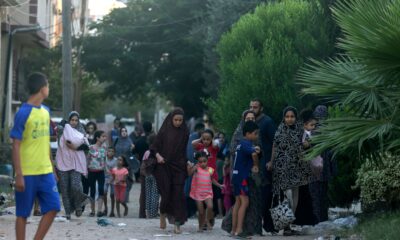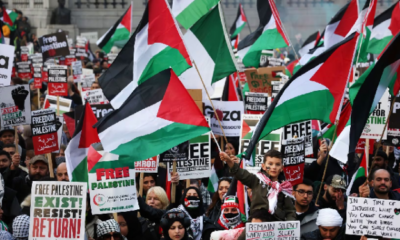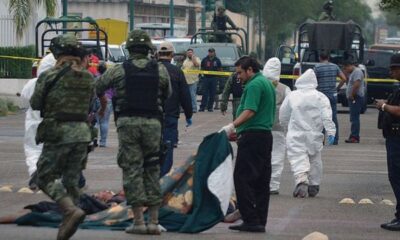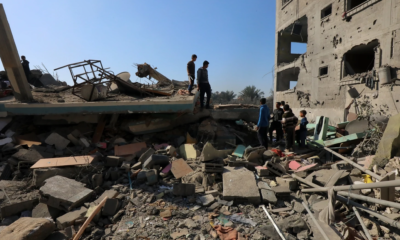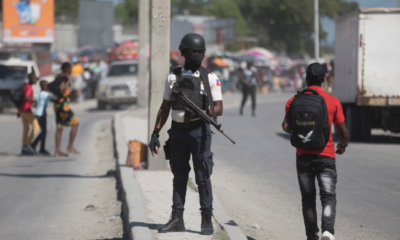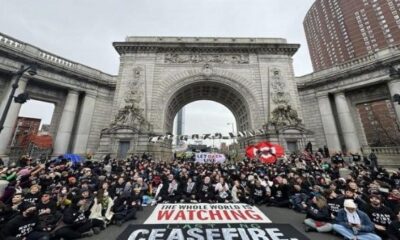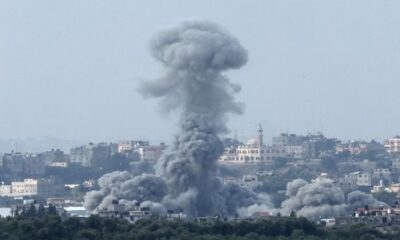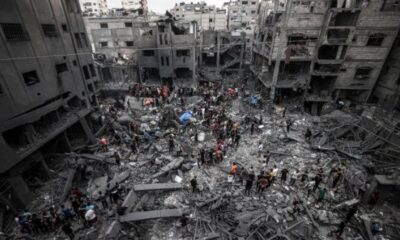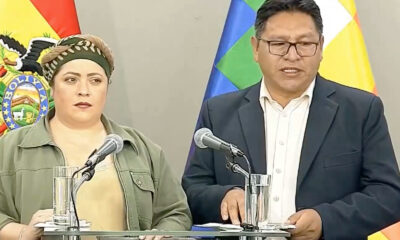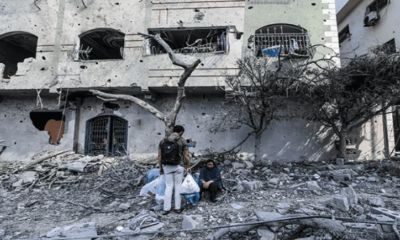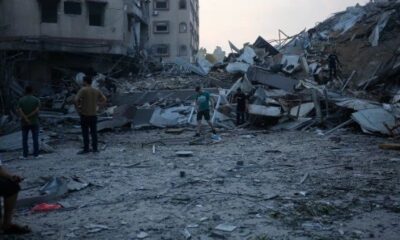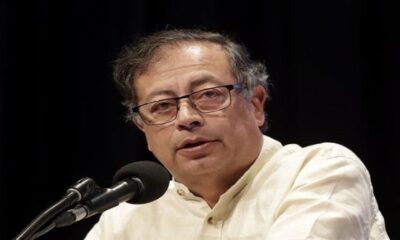International
The UN approves a resolution condemning Israel’s treatment of civilians in Gaza
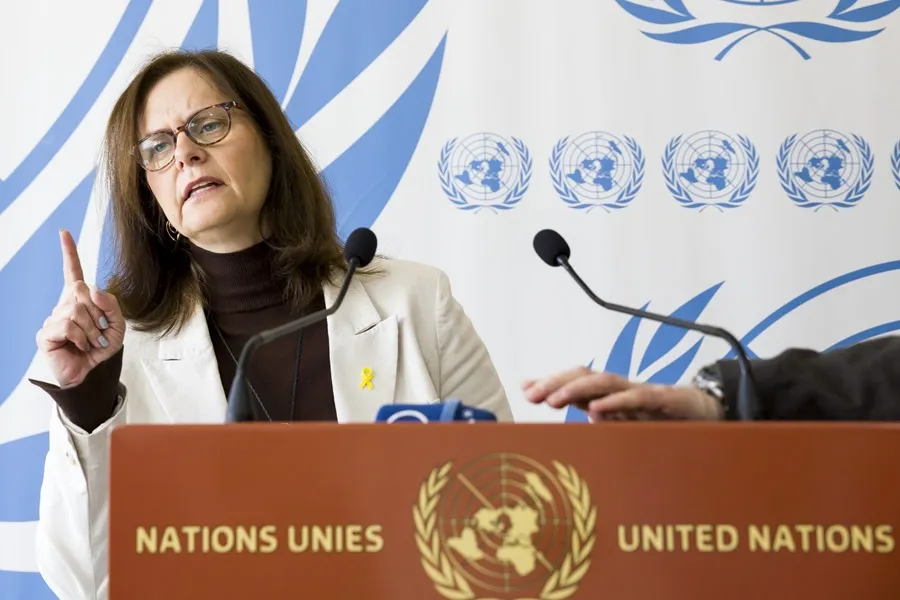
The United Nations Human Rights Council approved on Friday a resolution that condemns, among other abuses, “the practice of making the civilian population suffer hunger as a method of war in Gaza,” despite the votes against from countries such as Germany, Argentina or the United States.
The resolution was approved on the last day of the 55th session of the Council, which has lasted six weeks, with 28 votes in favor, 6 against and 13 abstentions, including those of France, India, Japan or the Netherlands.
The text also expresses “great concern” about statements by Israeli officials that “equate to incitement to genocide,” and urges the international community to stop the sale and transfer of weapons to Israel “in order to avoid further violations of international humanitarian law.”
On the other hand, the Council has adopted another resolution that reaffirms the Palestinian right to self-determination, “including its right to an independent State of Palestine.”
The resolution has been sponsored by about 70 countries, including Spain.
At least 54 Palestinians have died in the Gaza Strip in the last 24 hours, a figure that brings the total number of deaths since the beginning of the war to 33,091, according to the latest count of the Ministry of Health of the enclave, controlled by Hamas.
Of the death toll, more than 73% are women and children. Specifically, 14,500 minors have died to date, which makes this war the most lethal for childhood in years.
According to the official Palestinian agency Wafa, in recent hours artillery attacks have been recorded in large areas of the province of Jan Yunis, as well as in the eastern part of the city of Rafah, in the south of the Gaza Strip.
The Israeli Army has confirmed that it continues to operate in Jan Yunis to dismantle Hamas’ military capabilities and assured that it had eliminated several “terrorist cells.”
In addition, an intense air attack reached the vicinity of the city of Sheikh Zayed, in northern Gaza.
In the center of the Strip, Israeli artillery besieged several localities, including the Maghazi refugee camp, which also suffered air bombardment.
In addition, Israel attacked during the night several launch posts in the north of the enclave, from where yesterday rockets were fired at the Israeli cities of Ashkelon and Sderot and against the kibbutz Kfar Aza, which were claimed by Islamic Jihad.
The evacuation warnings issued by the Israeli Army to the Gazans before an attack are full of important errors that cause confusion, according to a BBC analysis released this Friday.
The British public broadcaster examined numerous material in brochures or transmitted through social networks corresponding to 26 different announcements issued since December 1.
In his study, he found notable inconsistencies, which meant that many people did not know exactly where to go.
“The warnings contained contradictory information and, sometimes, districts with incorrect names,” says the network, which has consulted experts who indicate that these errors “could violate Israel’s obligations under international law.”
The Israel Defense Forces (IDF) have rejected the results of this BBC study in a statement and assure that the alerts are only a part of their “extensive efforts to encourage the evacuation of civilians.”
International humanitarian law requires that the attacking forces warn in advance and effectively of attacks that may affect the civilian population, unless circumstances do not allow it.
An internal investigation by the Israeli Army has determined that Efrat Katz, a 68-year-old Israeli, was “probably” killed by an Air Force attack on October 7 in the Nir Oz kibutz during the attack in Hamas, when militiamen took her hostage to the Strip.
Based on the evidence captured by drones and security cameras, as well as testimonies from Air Force crews and witnesses, the examination concluded that a combat helicopter opened fire on a vehicle where “terrorists” from Hamas were traveling, in which Katz was also traveling.
“As a result of the shooting, most of the terrorists traveling in the vehicle died, and apparently Efrat Katz,” the Israeli Army said.
The examination was carried out by a designated team established under the direction of the Commander-in-Chief of the Israel Air Force, in order to examine the issue, in parallel with the in-depth examinations of all the combat incidents of October 7.
The heads of the Israeli and US intelligence services will arrive in Cairo at the beginning of next week to meet with their Egyptian and Qatari counterparts in the framework of the negotiations for a truce in Gaza, an Egyptian security source told EFE.
According to this same source, who asked for anonymity because of the sensitivity of the matter, both the head of the Mossad, Didi Barnea, and that of the CIA, Bill Burns, will arrive in the Egyptian capital at the beginning of this week to start talks with “the Qatari Prime Minister and the head of Egyptian Intelligence.”
The objective of this meeting is “to achieve an openness in the conversations with which they seek to free the hostages held by the Islamic resistance movement Hamas in Gaza.”
On the other hand, a Palestinian source told EFE that Barnea will participate in the meeting “together with the president of Shabak, Ronen Bar, and the head of hostages and missing persons in the Israeli Army, General Nitzan Alon.”
International
Football Fan Killed in Clashes After Colombian League Match

Fans of Cúcuta Deportivo and their traditional rivals Atlético Bucaramanga clashed outside the stadium following their local league match on Tuesday, leaving one supporter dead and several others injured.
The deceased fan was stabbed, according to a senior police official in Cúcuta who confirmed the cause of death in a video statement. Local media reported that the victim was a supporter of the visiting team, Atlético Bucaramanga.
The match ended in a 2-2 draw. Authorities had banned the entry of Atlético Bucaramanga’s organized supporters into the stadium in an effort to prevent disturbances.
Despite the restrictions, violence broke out in the surrounding areas after the game. Among the injured were three police officers, an institutional source told AFP.
The incident adds to a series of recent violent episodes linked to Colombian football. The most recent occurred in December, when supporters of Atlético Nacional and Independiente Medellín clashed in the stands and on the pitch, leaving 59 people injured.
International
Missing Spanish Sailor Rescued After 11 Days Adrift in Mediterranean

The man had departed from the port of Gandía, on Spain’s eastern coast, with the intention of reaching the southern Spanish town of Guardamar del Segura, a journey of about 150 kilometers, a spokesperson for Spain’s maritime rescue service told AFP.
Search boats and aircraft were deployed on January 17, but the operation was called off on January 22 after efforts proved unsuccessful. Alerts were then issued to vessels navigating the area in case they spotted any signs of the missing sailor.
As hopes were fading, a surveillance aircraft from the European Union’s border agency Frontex spotted the sailboat on Tuesday, along with a person signaling for help, approximately 53 nautical miles northeast of Bejaia, Algeria.
A nearby vessel, the Singapore-flagged bulk carrier Thor Confidence, carried out the rescue and is expected to bring the man to an end to his ordeal when it arrives on Thursday in the southern Spanish port city of Algeciras.
Maritime rescue services shared images on social media showing a small white sailboat drifting at sea and secured alongside the much larger ship.
It remains unclear how the sailboat ended up hundreds of kilometers off its intended route or how the man managed to survive for so long alone in open waters.
International
Rubio Says U.S. Could Participate in Follow-Up Russia-Ukraine Talks

The United States could join a new round of talks this week aimed at ending Russia’s invasion of Ukraine, Secretary of State Marco Rubio said on Tuesday.
Teams from Kyiv and Moscow met last Friday and Saturday in Abu Dhabi in their first publicly acknowledged direct negotiations to discuss the peace initiative promoted by former U.S. President Donald Trump.
“They are going to hold follow-up talks again this week,” Rubio told the Senate Foreign Relations Committee. “There could be U.S. participation.”
However, Rubio suggested that Washington’s role may be more limited than during last week’s discussions, which included Steve Witkoff, the president’s special envoy, and Jared Kushner, Trump’s son-in-law.
The secretary of state indicated that progress may have already been made on security guarantees for Ukraine, one of Kyiv’s key demands in any agreement with Moscow after nearly four years of Russian invasion.
“There is one remaining issue that everyone is familiar with, and that is the territorial claim over Donetsk,” Rubio said, referring to the eastern Ukrainian region that Russia wants Ukraine to cede.
“I know that active efforts are underway to see whether the positions of both sides on this issue can be reconciled. It remains a bridge we have not yet crossed,” he added during the hearing.
Rubio acknowledged that the territorial question would be particularly difficult for Ukraine to resolve.
-

 Central America3 days ago
Central America3 days agoGuatemala seizes over a ton of cocaine hidden in flour at Pacific port
-

 International4 days ago
International4 days agoDelcy Rodríguez seeks political agreements after Maduro’s ouster
-

 International3 days ago
International3 days agoHistoric snowstorm paralyzes Toronto after 60 centimeters of snow
-

 International3 days ago
International3 days agoSpain’s irregular migrant population rises to 840,000, study finds
-

 Central America2 days ago
Central America2 days agoGuatemala Police Arrest Prison Guard Caught in the Act of Extortion
-

 International4 days ago
International4 days agoFederal immigration agents kill man in Minneapolis, sparking protests and outrage
-

 Central America2 days ago
Central America2 days agoHonduras swears in conservative president Asfura after disputed election
-

 International22 hours ago
International22 hours agoFootball Fan Killed in Clashes After Colombian League Match
-

 Central America2 days ago
Central America2 days agoBukele leads public trust rankings as UCA survey highlights gains in security
-

 International2 days ago
International2 days agoWinter Storm Fern Leaves 30 Dead and Over One Million Without Power Across the U.S.
-

 International2 days ago
International2 days agoDoomsday clock moves to 85 seconds before midnight amid rising global risks
-

 Sin categoría2 days ago
Sin categoría2 days agoEight Killed in Series of Armed Attacks in Ecuador’s Manabí Province
-

 International3 days ago
International3 days agoRights group says nearly 6,000 killed in Iran protest crackdown
-

 International22 hours ago
International22 hours agoRubio Says U.S. Could Participate in Follow-Up Russia-Ukraine Talks
-

 International22 hours ago
International22 hours agoMissing Spanish Sailor Rescued After 11 Days Adrift in Mediterranean
-

 International2 days ago
International2 days agoSpain approves plan to regularize up to 500,000 migrants in Historic Shift
-

 Central America22 hours ago
Central America22 hours agoGuatemala President Says Starlink Terminal Found Inside Prison
-

 International3 days ago
International3 days agoVenezuela frees at least 80 political prisoners, NGO says
-

 Sin categoría2 days ago
Sin categoría2 days agoEl Salvador Launches Fourth Year of Ocean Mission to Protect Marine Ecosystems
-

 International3 days ago
International3 days agoEU launches new probe into X over AI-generated fake nude images
-

 International3 days ago
International3 days agoSevere winter storm grips U.S., leaves multiple dead as extreme cold persists
-

 International3 days ago
International3 days agoFrance debates ban on social media for children under 15

























